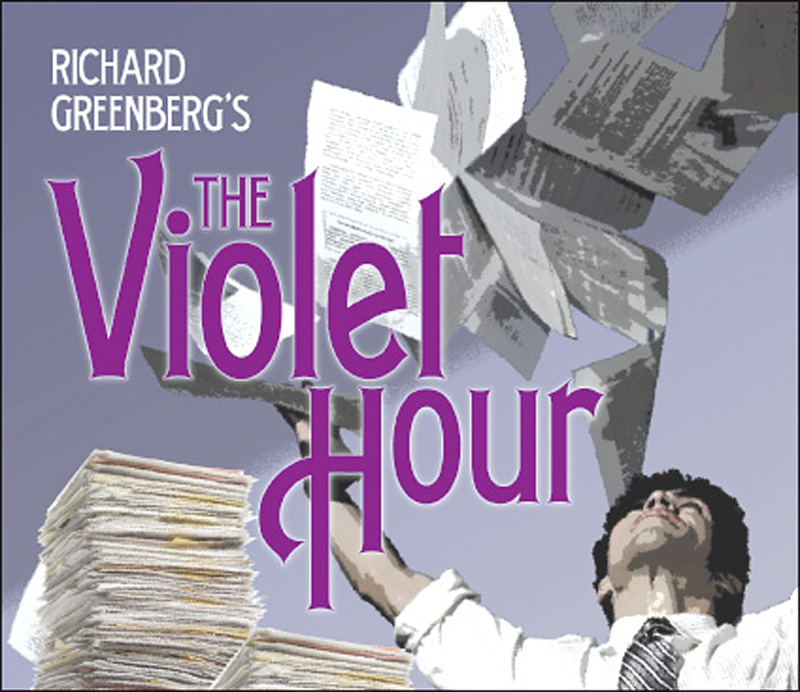Richard Greenberg’s The Violet Hour is as plucky and delightful a literary aperitif as can be imbibed in a single reading, where his quicksilver sentences cross like deftly jibing sails. But performing the 2002 play is a different matter: For actors to get their chops around that snappy wit and make it feel real and spontaneous is a challenge. Judging from two early performances, Seattle Public Theater is close, but not quite there yet.
It’s April 1, 1919, in the New York publishing office of well-born John Pace Seavering (Shawn Law). While Pace is besieged by two authors to publish their respective books, a mysterious machine arrives and starts spewing pages of books from the future. Through the hasty deciphering of these perplexing puzzle pieces, John must decide which of the two writers to publish.
One is his glamorous African-American girlfriend, Jessie (Amber Wolfe), who’s penned a memoir. The other is his school chum Denny (Eric Riedmann), a novelist in the F. Scott Fitzgerald vein. (Denny’s chirpy beef-heiress fiancée Rosamund, played by Shanna Allman, also suggests Zelda Fitzgerald.) All four characters appear to have bright futures ahead of them—only the magical printing device keeps sending back contrary dispatches.
It sounds like light parlor comedy, but Greenberg (Take Me Out) has weightier stuff in mind—including World War I, racism, mental illness, economic inequality, and the meaning of art. On the page, the reader can easily navigate these quick shifts of tone. Onstage, they’re more problematic.
That tension is embodied by the comic intrusions of a fifth character, John’s sublimely peevish and resentful office receptionist Gidger. Evan Whitfield steals the show with many of the play’s funniest lines. His stiff and ghoulish Gidger regularly bursts in like Seinfeld‘s Kramer with complaints, such as how in the future his “low, irredeemable” dog becomes famous among the writers of the Algonquin Round Table. This’d be fine for a sitcom, but undercuts Greenberg’s serious scenes. It’s as if director Rita Giomi wants to splash water on the dramatic heat onstage; or maybe the play’s structure is to blame.
Meanwhile, caught between Denny’s manic zeal and Jessie’s iron-calm will, John becomes the decision-maker who can’t make a decision. Law shows us the weakness beneath the publisher’s articulate Princeton pedigree. Wolfe is a joy to watch, in complete control of her role. Her sphinx-like face vacillates between opacity and transparency. Even from the sixth row I could discern a millimeter’s movement of her arched eyebrow.
However, from that vantage point I could not see crucial bits of business unwisely staged on the floor. Hence my need to view a second performance, which measurably improved upon the first. Even if the play’s characters don’t like their glimpses of the future, this Violet Hour has brighter days ahead.








